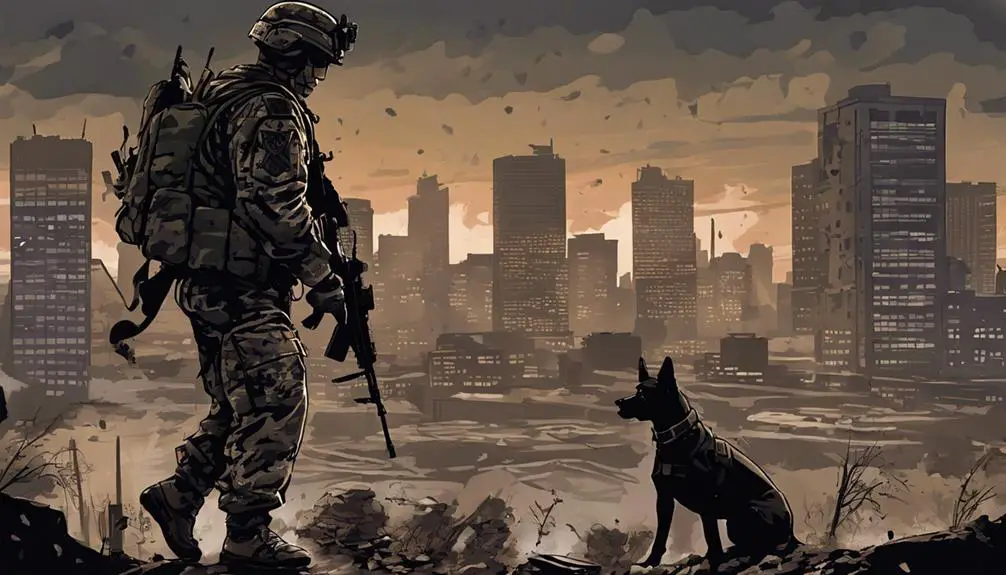You're likely to encounter a unique linguistic landscape when interacting with military personnel in the DC area, particularly in the Pentagon. Military slang emerges from the need for quick, efficient communication, influenced by military branches, government agencies, and cultural nuances. You'll encounter cryptic abbreviations and colloquialisms like COCOM, J3, and SCIF. Understanding this language is essential for effective collaboration and decision-making. As you navigate this complex web of acronyms, colloquialisms, and jargon, you'll gain insight into military culture and values. Want to uncover more of the secrets hidden in DC military slang?
Origins of DC Military Lingo
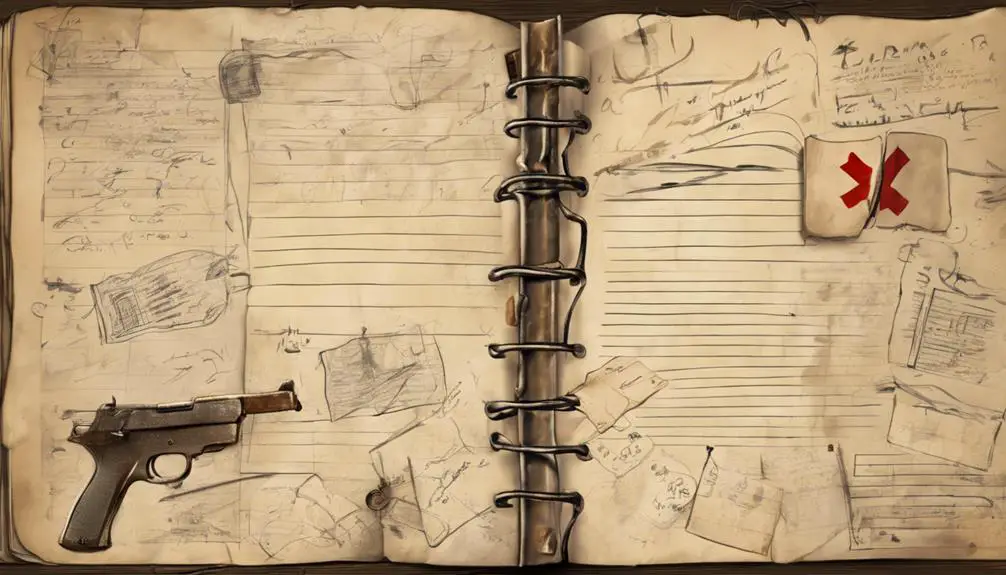
You'll find that the origins of DC military lingo can be traced back to the early days of the Department of Defense, when military personnel and government officials needed a way to communicate complex ideas quickly and efficiently. This was a time when brevity and clarity were essential, as decisions had to be made swiftly in high-pressure situations. As a result, a unique language emerged, characterized by abbreviations, acronyms, and slang terms.
The historical roots of DC military lingo are deeply rooted in military etymology. It's a language that has evolved over time, influenced by various military branches, government agencies, and even cultural nuances. The terminology used by the military has been shaped by the need for secrecy, speed, and precision. This has led to the creation of a distinct dialect that's both functional and exclusive.
Understanding the origins of DC military lingo is essential to grasping its significance and relevance in modern military communication. By exploring its historical roots, you'll gain insight into the complexities of military language and its role in shaping the defense community.
Slang in the Pentagon
As you navigate the corridors of the Pentagon, you're likely to overhear snippets of conversation peppered with cryptic abbreviations and colloquialisms that might sound like a foreign language to outsiders. This unique dialect is an integral part of Pentagon Culture, where Security Lingo is essential for efficient communication among personnel.
In this hub of military operations, you'll encounter a distinct language that's been shaped by decades of tradition and necessity. Here are a few examples of the terminology you might encounter:
- COCOM: Combatant Command, referring to one of the eleven unified commands in the US military.
- J3: Operations Directorate, responsible for planning and executing military operations.
- POM: Program Objective Memorandum, a budget and planning document.
- SCIF: Sensitive Compartmented Information Facility, a secure room for classified discussions.
- VTC: Video Teleconference, a virtual meeting platform for secure communication.
As you explore further into the Pentagon's inner workings, you'll discover a complex web of acronyms, abbreviations, and colloquialisms that facilitate seamless communication among personnel. This unique language is a hallmark of the Pentagon's culture, and understanding it's essential for effective collaboration and decision-making.
Everyday Terms for Troops
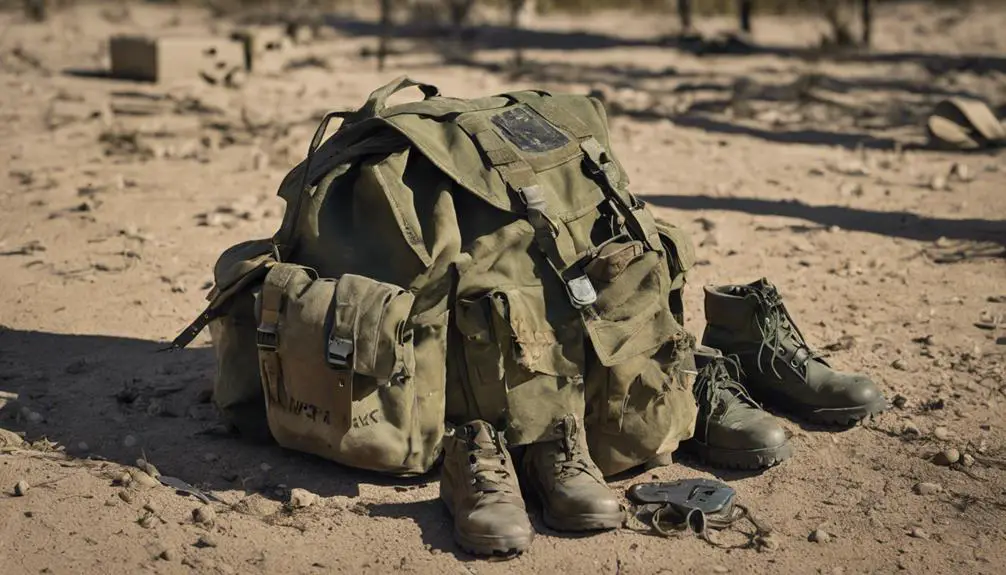
Operating in the trenches, troops rely on a distinct vocabulary to convey complex ideas quickly and accurately. You'll hear phrases like 'situational awareness' to describe being aware of your surroundings, or 'battle rhythm' to describe the tempo of operations. These everyday terms for troops are essential for effective communication on the battlefield.
You'll also hear troops refer to their closest comrades as 'Battle Buddies.' This term emphasizes the bond and trust that develops between soldiers who rely on each other for survival. It's a term that transcends rank and position, highlighting the camaraderie that defines military culture.
Start your day with the 'Morning Motto,' a phrase repeated by troops to set a positive tone for the day ahead. This daily affirmation serves as a reminder of the values and principles that guide military service.
These everyday terms for troops are woven into the fabric of military life, facilitating clear communication and fostering a sense of community among service members. By embracing this distinct vocabulary, you'll better understand the language and culture of the military.
Base Lingo and Jargon
On any military base, you'll navigate a unique linguistic landscape where 'brass' refers to high-ranking officers, 'chow' means food, and 'latrine' is synonymous with bathroom. As you adapt to the military way of life, you'll encounter a distinct dialect that's essential to understanding the culture.
Base lingo and jargon are integral to military communication, and grasping these idioms will help you navigate everyday conversations.
Here are some essential terms to get you started:
- *SITREP*: Situation Report, a brief update on a mission or operation
- *FOB*: Forward Operating Base, a temporary base of operations
- *EOD*: Explosive Ordnance Disposal, a team that handles bomb disposal
- *R&R*: Rest and Relaxation, a period of leave or leisure time
- *SOGI*: Security Operations Group Intelligence, a team that handles classified information
Familiarizing yourself with these military idioms will help you better understand base dialectics and communicate more effectively with your fellow service members. By embracing this unique linguistic landscape, you'll become a more integral part of the military community.
Code Words for Operations
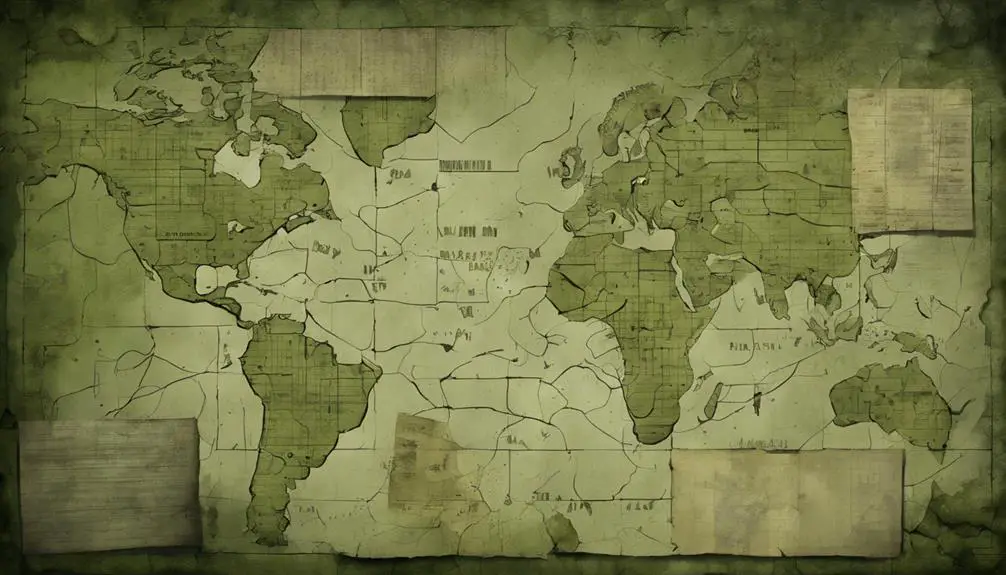
You'll encounter code words and phrases used to conceal sensitive information about ongoing or planned operations, ensuring that only authorized personnel are privy to critical details. These cryptic terms are essential in maintaining operational security, allowing military personnel to discuss classified information without arousing suspicion.
For instance, Operation Names, such as Operation Desert Storm or Operation Enduring Freedom, are used to identify specific military campaigns. These names often convey a sense of purpose, location, or objective, without revealing sensitive details.
Mission Labels, on the other hand, are used to identify specific tasks or objectives within an operation. These labels can include code words, abbreviations, or acronyms that provide a layer of secrecy while still conveying essential information to those with clearance.
Colloquialisms for Ranks
As you become familiar with code words and phrases, you'll also encounter colloquialisms used to refer to military ranks, allowing personnel to quickly identify an individual's position and authority in a conversation. These colloquialisms, often referred to as 'Rank Nicknames' or 'Officer Aliases,' are an essential part of military slang.
Here are some common colloquialisms used to refer to military ranks:
- E-4 Mafia: Refers to junior non-commissioned officers (NCOs) with the rank of Corporal (E-4)
- Butterbar: Refers to a Second Lieutenant (O-1)
- El-Tee: Refers to a First Lieutenant (O-2)
- Captain America: Refers to a Captain (O-3)
- Full Bird: Refers to a Colonel (O-6)
These colloquialisms aren't only used in informal conversations but also in official communications, such as radio transmissions and written reports.
DC-Area Military Acronyms
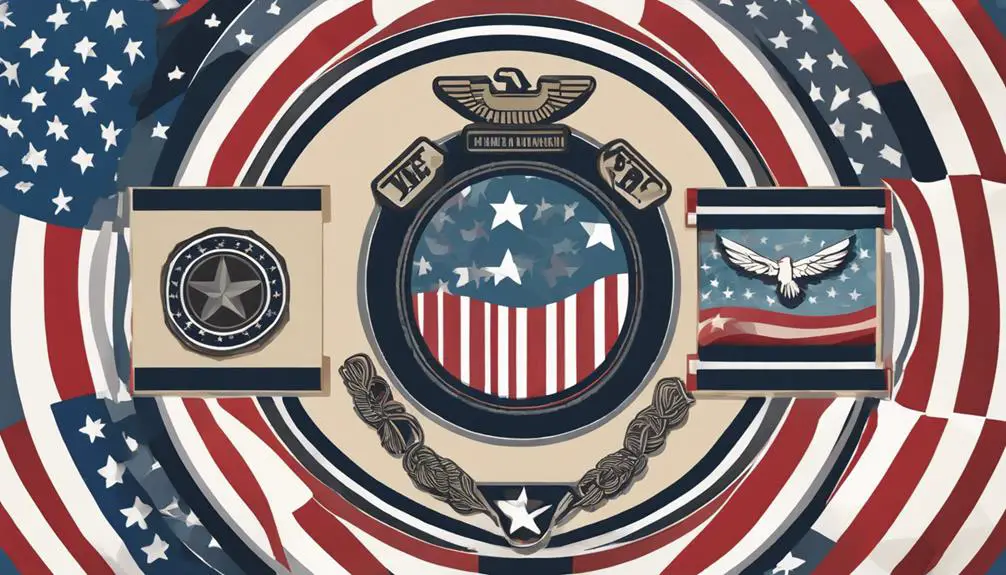
In the DC area, you'll frequently encounter military acronyms that are unique to the region or specific to certain units, and understanding these abbreviations is essential for effective communication. You'll hear them tossed around in conversations, briefings, and even in written reports.
For instance, you might hear 'Foggy Bottom' referring to the Department of State's headquarters, or 'Beltway' when discussing the area's infamous traffic circle. Some acronyms might be familiar, like 'Pentagon' or 'DoD,' but others might leave you scratching your head.
Don't be afraid to ask for clarification – it's better to understand the context than to pretend you're in the know. You'll encounter unit-specific acronyms, like 'USCENTCOM' for the US Central Command or 'USCYBERCOM' for the US Cyber Command.
Familiarize yourself with these abbreviations, and you'll navigate conversations like a pro. Remember, effective communication is key in the military, and understanding these acronyms will help you stay on the same page as your colleagues.
Lost in Translation: Civilian Edition
Military slang and acronyms can be bewildering to civilians who suddenly find themselves interacting with the military community, leaving them struggling to decipher phrases like 'I'm heading to the Pentagon' or 'The CO briefed us on the op.' As you navigate this unfamiliar territory, you may find yourself lost in translation, unsure of what's being discussed or what's expected of you.
To avoid cultural missteps and language barriers, it's essential to understand the military's unique language. Here are some key takeaways to get you started:
- Familiarize yourself with common acronyms like CO (Commanding Officer) and OP (Operation)
- Don't be afraid to ask for clarification when you're unsure of a term or phrase
- Be mindful of military jargon, which can be very different from civilian language
- Avoid using military slang or acronyms unless you're familiar with their meaning
- Take the time to learn about military culture and customs to avoid unintentionally offending someone
Frequently Asked Questions
Is DC Military Slang Used by All Branches of the Military?
When you explore the world of military lingo, you might wonder: is DC military slang used by all branches of the military?
The answer is no. While some slang terms are universally understood, branch variations exist. Uniformity debates arise due to differing cultural and operational contexts.
For instance, the Navy's 'deck' might be the Army's 'floor.' This highlights the nuances in language use across branches, making DC military slang less widespread than you might think.
Are There Regional Differences in DC Military Slang?
You might assume regional differences don't exist in military slang, but that's not the case. In fact, geographic variations in slang are quite common.
For instance, Coastal dialects can vary greatly from inland dialects. You'll find that certain phrases or words are unique to specific regions, shaped by local culture and history.
This regional flavor adds richness to military slang, reflecting the diverse backgrounds of service members.
Is DC Military Slang Used in International Military Operations?
When you're part of international military operations, you'll encounter coalition partnerships that bring together forces from diverse cultural backgrounds. You'll face cultural barriers that require effective communication to overcome.
In this scenario, using specialized slang can be a hindrance. You might wonder if DC military slang is used in these operations. The answer is no – standardized communication protocols take priority to guarantee clarity and avoid misunderstandings.
Can Civilians Use DC Military Slang in Professional Settings?
When considering using military slang in a professional setting, you should exercise caution. While it may seem cool or impressive, using cultural references without understanding their origins can be seen as cultural appropriation.
In professional etiquette, it's crucial to be respectful and sensitive to the origins of language. Before adopting military slang, ask yourself if you're using it as a genuine expression or just to seem trendy.
Be mindful of your audience and adjust your language accordingly to avoid misunderstandings.
Are There Any DC Military Slang Terms That Are Considered Offensive?
When using slang in professional settings, you should be mindful of inappropriate phrases that may offend others. Some terms can perpetuate cultural insensitivities, causing unintended harm. It's important to take into account your audience and avoid language that might be misinterpreted or disrespectful.
Even in casual conversations, it's vital to prioritize respect and inclusivity. Be aware of the language you use and its potential impact on others.
Conclusion
As you navigate the labyrinthine corridors of the Pentagon, you're bombarded with a secret language only the initiated understand. You're not alone in feeling like a civilian lost in translation.
But now, you've cracked the code. You can decipher the cryptic 'blue falcon' warnings and 'Charlie Mike' affirmatives.
Yet, beware: in the world of DC military slang, you're only one misunderstood 'bolo' away from being 'Oscar Mike' – out of the loop.

